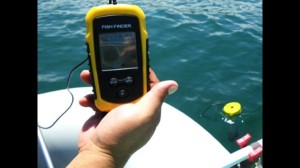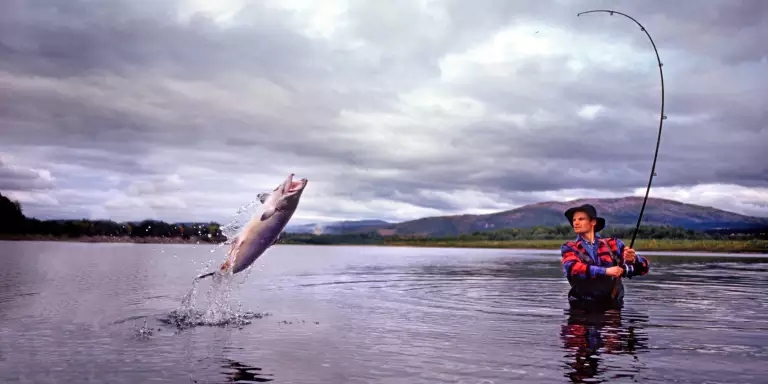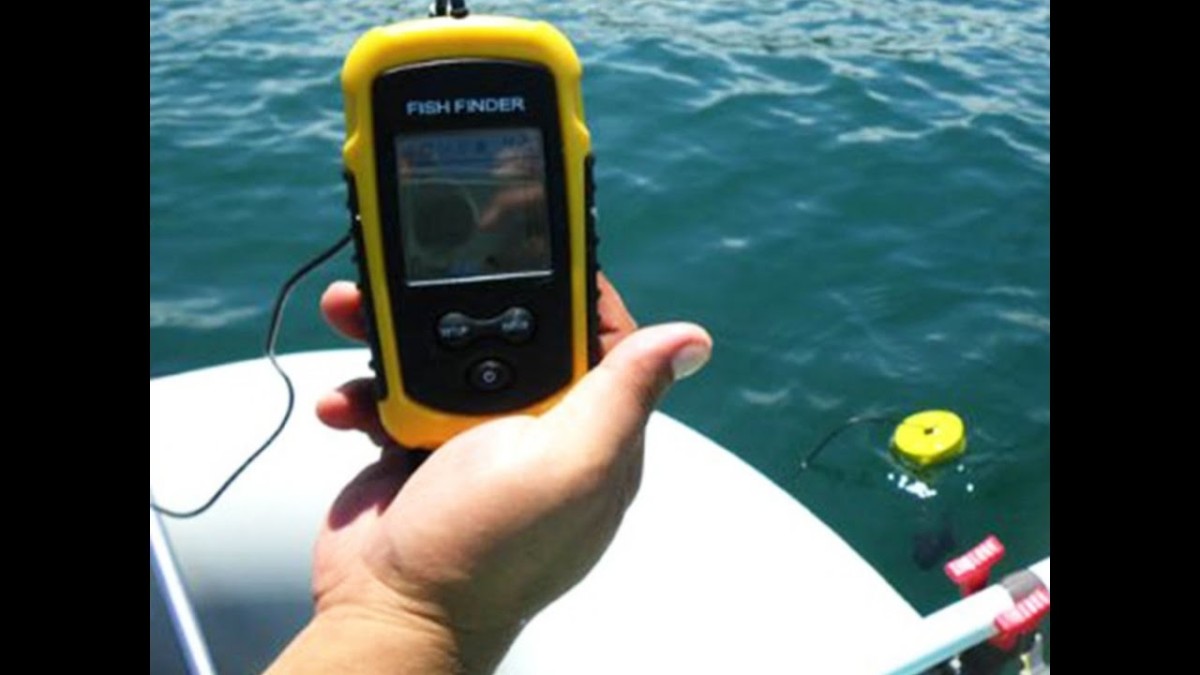Top 10 Most Popular Fishing & Hunting Video Clips
Best Fish Hunting – Awesome Boys Shoots Fish Using Crossbow Fishing
Top 10 Things to Consider Before Buying the Best Fish Finder in 2018
You are sitting out on the lake your fishing rod is one of the best and you are waiting for a bite. You have the best bait but you have still not caught any fish.
The fish are hiding and looking into the water you cannot see anything as the waters murky. Using the best fish finder is an amazing gadget that helps you pinpoint fish in shallow to deep water.
The gadget can tell you how deep the water is. It also advises you on the temperature of the water. However, there are different brands available on the market and choosing the best fish finders available is a difficult task.
This is why we are here to help you with important information when choosing one suitable for your fishing needs.
The top 10 things to consider when buying the best fish finder

When choosing the best fish finders available there are different things you need to consider. By following the steps we have set out here, you can find the one suitable for your needs.
- Consider the Frequency
One of the important features of a fish locator is the frequency range. You can buy fish finders with three types of frequencies:
- Dual
- Single
- Multiple frequencies
For fishing in shallow water the, 192 and 200 kHz is perfect. While the 50 and 83 kHz is more suitable for deep-water fishing. Source : 11must.com
- How is the fish finder powered
Here wattage is important. The higher wattage you have the faster the response is of the device. This allows you to see deeper into the water to find where the fish is hiding out. If you plan to fish in shallow water, you need a fish locator with less wattage.
See Also: Top 10 Fishing Tips
- The Screen Resolution
When choosing a brand you want a fish finder with a high resolution. The screen resolution should be at least 240 x 160 pixels. You can also opt-in choosing one with a higher resolution. With the combined screen size and resolution, it determines how clear the image will be.
- The Transducer
This is another vital piece of the fish locator. This helps you find the fisher deeper down in the water. All the models available on the market have a transducer. But it is better to check the aftermarket and invest in an extra one. You may find the extra one can receive more data faster.
- Do you need a GPS?
Now for the ultimate fish finder, you can consider buying a model with GPS built-in. If you are an angler who goes out onto the lake or sea, this is necessary have. You can only benefit as it offers you the hot spots to fish. You can mark your best fishing spots to return to when needed. Further, it helps you to navigate through water and points you towards your home. This prevents you from getting lost at sea.
- Do you need a fixed one or portable model?
There are two different fish locators you can buy the fixed and portable models. If you lease a boat, opting for the portable unit is the best choice. Now if you own a boat, the fixed model is more suitable to use. You can mount it to your boat and leave it there.
- How durable is the device
No matter where you use the fish finder it needs to be durable enough to withstand any weather. Look for a waterproof rated design. You do not want your expensive gadget ruined by salt water.
- Other features to consider
You can consider other important features as well:
- What is the cone angle?
- What type of beams used in the fish locator?
- What is the material used to construct the transducer?
- What color display is the screen black & white or color?
- What is your budget?
These fancy devices can start from $200 up to a $1,000. Here the importance is to consider where you will be fishing. If you have a tight budget, you can find models sold under the 200-buck mark.
- Warranty and Customer Service
Many people forget about this important feature. You are spending loads of money on this device and a warranty with excellent customer service is necessary.
Final Thoughts
No matter where you fish, having the best fish finder will help, you find those hidden fish. They are great gadgets to have and once you use it, you will wonder where it has been all your life. Furthermore, you will wonder how you ever caught fish without one.
How to Read Fish Finders: Complete Video Guide
Complete Video Guide : How to Read Fish Finders
Top 10 Fishing Tips 2018
Going Fishing Trip? Don’t forget these 10 Fishing Tips
Never come unprepared ever again.

So maybe you’ve learned how to catch fish, and realized how great it actually is. Probably to the point of wanting to up your game. No worries; with these fishing tips, you’re sure to be sailing more adventurous (and fish-infested) waters in an instant.
- Know your skill level
This will inform what kind of equipment you’ll be needing, and what adjustments you’ll need to have to know your technique. Bleacher Report, for instance, notes that “open-faced fishing reels are never recommended” for beginners. It’s only then that you can efficiently proceed in your practice.
- Do your research
When fishing, note that not all types are equal. Some may require special considerations, so you have to be wary of them. The following video has some examples of tips per fishing type, as well as per fish species.
- Make sure you have the right equipment
When learning how to fish, usually having your own equipment is in order. The more you research, however, the more you realize what kind of equipment you actually need per fishing type (and skill level). So go on, get that net or tackle box, and maybe throw in the best fish finder out there as well. You’ll never know when you’ll need it
- Fix up your lures
Your bait is what captures your target, so make sure you make the most of it. Be acquainted with the types of bait your target species like, and don’t be afraid to decorate them according to their liking. On the Water has some great tips on fixing your bait, like marking off soft baits and dressing up your jigs.
- Wear the appropriate attire
Sometimes potentially successful fishing trips can be sabotaged by the wrong choice of dress. Make sure you get into the needed gear before heading for a trip. Not only is it beneficial for you, but to your catch too – the wrong attire might reflect too much light on the fish, repelling them.
- Take care of your equipment
While one’s practice is not completely determined by his equipment, it certainly does help to keep them in proper working condition. http://www.huffingtonpost.com/topic/fishing gives some pretty solid advice, such as keeping your hooks sharp and cleaning your rods, reels, and lures with fresh clean water.
- Double-check your stuff before the trip
There’s nothing more terrifying than forgetting something at home once you’re at the fishing hole. Combat this problem by checking and preparing what you need the day before.
- Store equipment properly
It’s always frustrating whenever you’re greeting by bundles of tangled lines and scattered snaps and swivels. Combat this by storing them properly. Always remember to separate your reels from the rods and keep your tackles on a large snap for easy access.
- Timing is everything
Nobody likes leaving a fishing trip with nothing. Sometimes, however, it’s less about luck and more about timing. https://www.takemefishing.org/ notes that the best times to fish are usually in the early morning and afternoon.
- Get a fish finder
As you continue on your fishing journey, you’ll come to realize that a lot of the difficulties you’ll encounter are sometimes out of your control. Fortunately, nowadays there are innovations that help mitigate that as much as possible, such as fish finders. The best fish finder can even go as much as check the water conditions for you, as well as the fish you’d want to catch.
When do I know when I should get a fish finder?
Technically you can get a fish finder whatever level you are, since it makes fishing much easier. If you’re starting out, perhaps after a few tries without it to better acquaint yourself with your own fishing needs.
Should I also be wary of the winds?
Yes. Winds usually affect fish behavior, as most fish tend to binge before a storm and don’t before a cold front. Winds also help mask your lures, making them more believable to the fish, so it’s better to fish when the wind is blowing than during still weather.
How do I know which lure to choose?
While most lures can cover a wide array of fishing styles, it really depends on what you need for a particular trip. If you’re low on cash but want a decent enough lure, jigs are usually easy to procure; if you’re fly-fishing, however, flies are usually more used since they imitate the insect.
How do I determine my skill level?
The easiest way is to look at how often you fish and what your goals are. If you don’t fish as much and aren’t looking to get competitive, then you might be a little below intermediate level.
